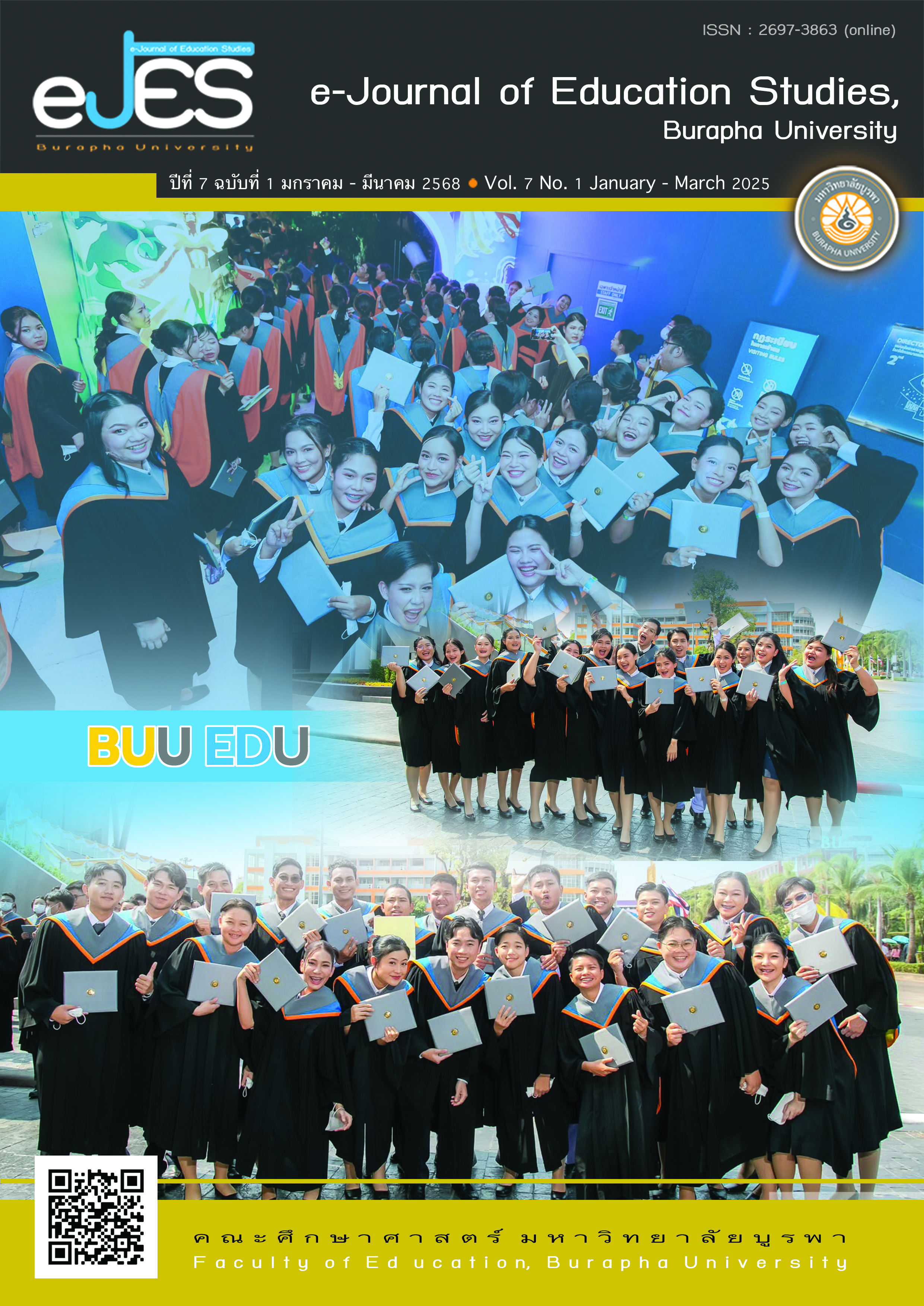The Web-Based Online Education Platform as A Hybrid Learning Tool for Synchronized College English Learning
Main Article Content
บทคัดย่อ
This study evaluates Rain Classroom, a modern educational platform, for hybrid learning in college English education by comparing language performance and student engagement in hybrid (n=33) and traditional (n=33) classrooms. Using a pretest-posttest quasi-experimental design, data from College English Test (CET) scores and engagement scales were analyzed via independent t-tests. The hybrid group demonstrated significant CET improvements in listening (t(64) = -2.10, p = .04), reading (t(64) = -3.84, p < .001), and writing/translation (t(64) = -2.52, p = .01), along with higher engagement across agentic (t(64) = -5.99, p < .01), behavioral (t(64) = -3.02, p < .01), cognitive (t(64) = -9.35, p < .01), and emotional (t(64) = -5.10, p < .01) domains. The findings highlight the effectiveness of hybrid learning in improving language proficiency and student engagement, providing educators and institutions with a scalable model for blended instruction.
Article Details
เอกสารอ้างอิง
Alenazi, Y.R. (2023). Effectiveness of blended learning programs/models in English instruction in Saudi University: A systematic review of literature. Arab World English Journal (AWEJ), 14(4), 169–118. https://dx.doi.org/10.24093/awej/vol14no4.10
Brown, H. D. & Lee, H. (2018). Teaching by principles: An interactive approach to language pedagogy (4th ed.). Pearson Education.
Christenson, S. L., Reschly, A. L., & Wylie, C. (2012). Handbook of research on student engagement. Springer.
Cohen, J. (1988). Statistical power analysis for the behavioral sciences (2nd ed.). Lawrence Erlbaum Associates.
Field, A. P. (2018). Discovering statistics using IBM SPSS statistics (5th ed.). Sage.
Fluck, A.E. (2019). An international review of eExam technologies and impact. Computers & Education, 132, 1–14. https://doi.org/10.1016/j.compedu.2018.12.008
Fredricks, J. A., Blumenfeld, P. C., & Paris, A. H. (2004). School engagement: Potential of the concept, state of the evidence. Review of Educational Research, 74(1), 59–109. https://doi.org/10.3102/00346543074001059
Hattie, J. (2009). Visible learning: A synthesis of over 800 meta-analyses relating to achievement. Routledge.
Huang, L., Wang, F., & Xu, M. (2020). Real-time analytics in anatomy education: A case study of Rain Classroom. Medical Education Innovation, 8(4), 45–53.
Jang, H., Kim, E. J., & Reeve, J. (2012). Longitudinal test of self-determination theory's motivation mediation model in a naturally occurring classroom context. Journal of Educational Psychology, 104(4), 1175–1188. https://doi.org/10.1037/a0028089.
Koehler, M. J., & Mishra, P. (2009). What is technological pedagogical content knowledge? Contemporary Issues in Technology and Teacher Education, 9(1), 60–70.
Lakens, D. (2017). Equivalence tests: A practical primer for t-tests, correlations, and meta-analyses. Social Psychological and Personality Science, 8(4), 355–362. https://doi.org/10.1177/1948550617697177
Li, X., Zhao, Q., & Sun, J. (2020). Interactive tools and engagement in engineering education. Journal of Engineering Education, 109(1), 78–92.
Means, B., Toyama, Y., Murphy, R., & Baki, M. (2013). The effectiveness of online and blended learning: A meta-analysis of the empirical literature. Teachers College Record, 115(3), 1–47. https://doi.org/10.1177/016146811311500307
National CET Committee. (2022). Technical report on the College English Test (CET-4). Ministry of Education Press.
OECD. (2016). PISA 2015 results (Volume II): policies and practices for successful school. OECD Publishing.
Reeve, J. (2012). A self-determination theory perspective on student engagement. In Christenson, S.L., Reschly, A.L. & Wylie C. (Eds.), Handbook of research on student engagement (pp. 149–172). Springer.
Smith, L. R., & Jones, T. M. (2020). Traditional vs. technology-enhanced language instruction: A meta-analysis of efficacy. Language Teaching Research, 24(3), 345–361.
Vygotsky, L. S. (1978). Mind in society: The development of higher psychological processes. Harvard University Press.
Wang, Y., Chen, L., & Li, M. (2021). Designing hybrid language courses with Rain Classroom: A pedagogical framework. Journal of Computer-Assisted Learning, 37(4), 1023–1037.
Zhang, H., & Liu, R. (2022). AI-driven feedback in EFL writing: Evidence from Rain Classroom. Language Learning & Technology, 26(2), 56–73.
Zhang, L., & Wang, Y. (2021). Hybrid learning and engagement in college English. Journal of Language Teaching, 34(5), 223–237.



